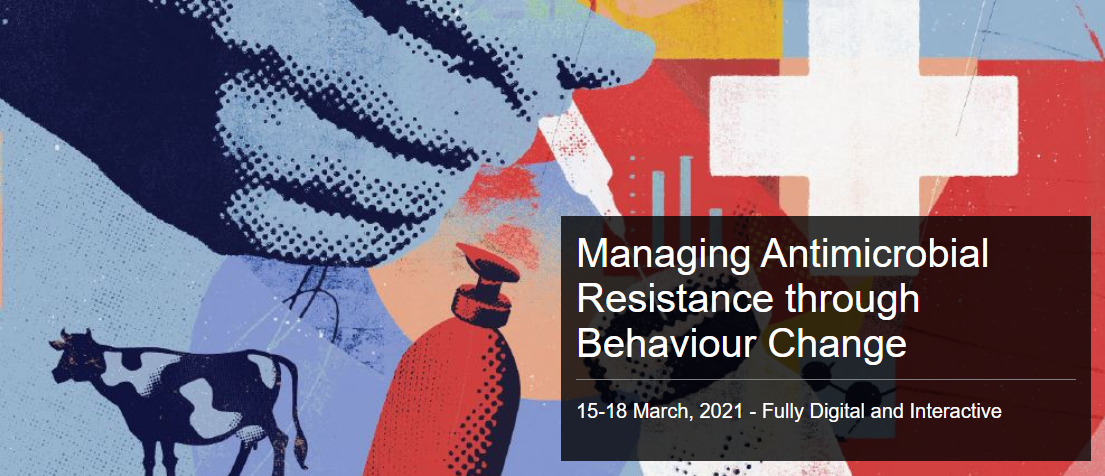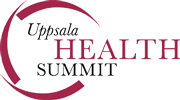During the first week of December 2020, NDPIA offered its first online course on Microbiota and Health. The course introduced the field of microbiomes with a focus on how microbiota affect the health of a host.
All posts by Hanna Eriksson
Summary of NDPIA Microbiota and Health course 2020
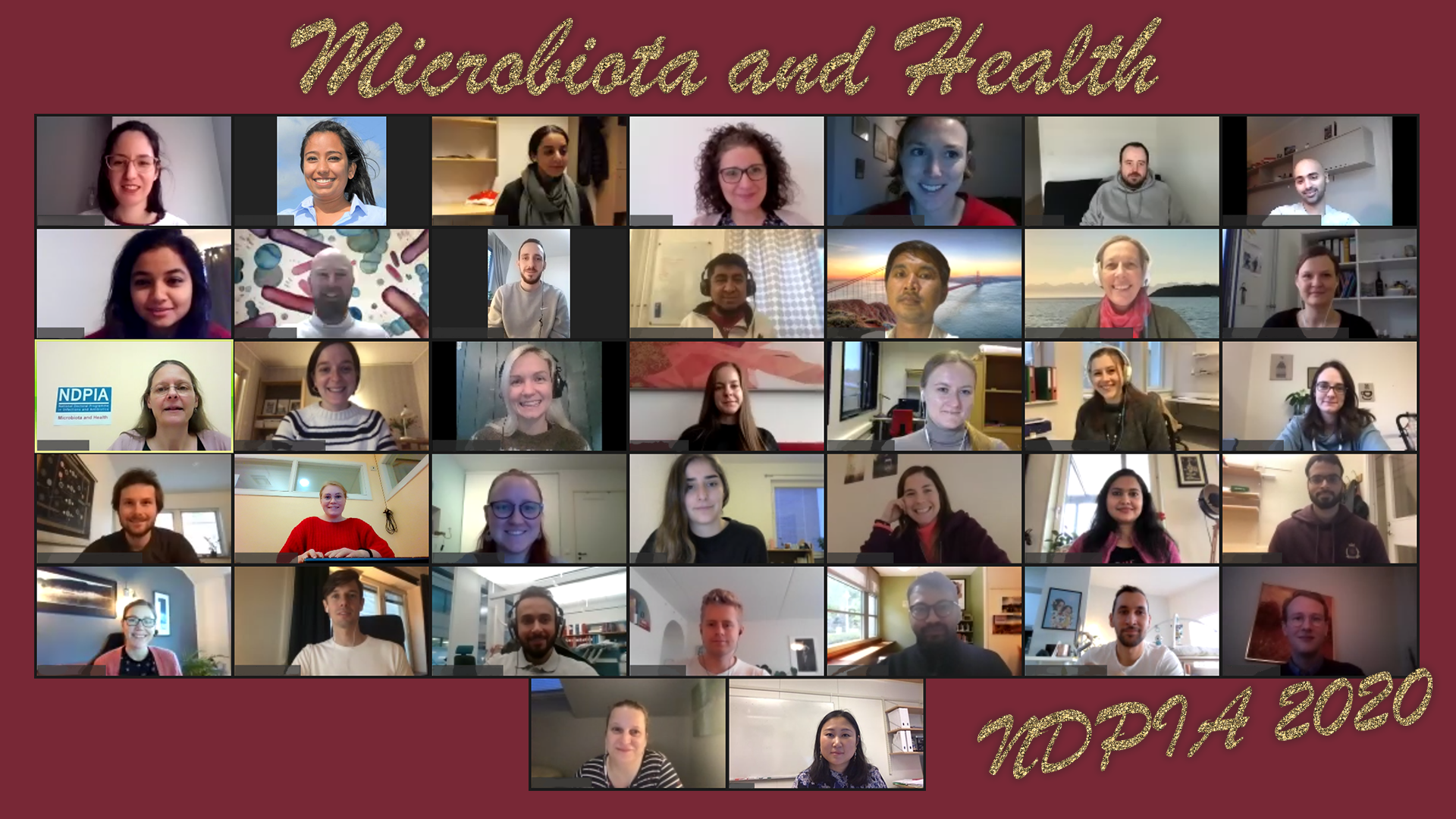
Group photo of the organizers and participants.
During the first week of December 2020, NDPIA offered its first online course on Microbiota and Health. The course introduced the field of microbiomes with a focus on how microbiota affect the health of a host.
Twenty international experts in the microbiome field, including Willem de Vos (University of Helsinki, Wageningen University), Nathalie Delzenne (Université Catholique de Louvain), and Erica and Justin Sonnenburg (Stanford University School of Medicine), presented lectures and held discussions on methods used to study microbiomes. Areas that were covered included microbiota associated with hosts, such as humans, farm-animals, and plants, effects of diet and age on the microbiota, interactions of the microbiota with the immune system and drugs, and trends on modifying the microbiota.
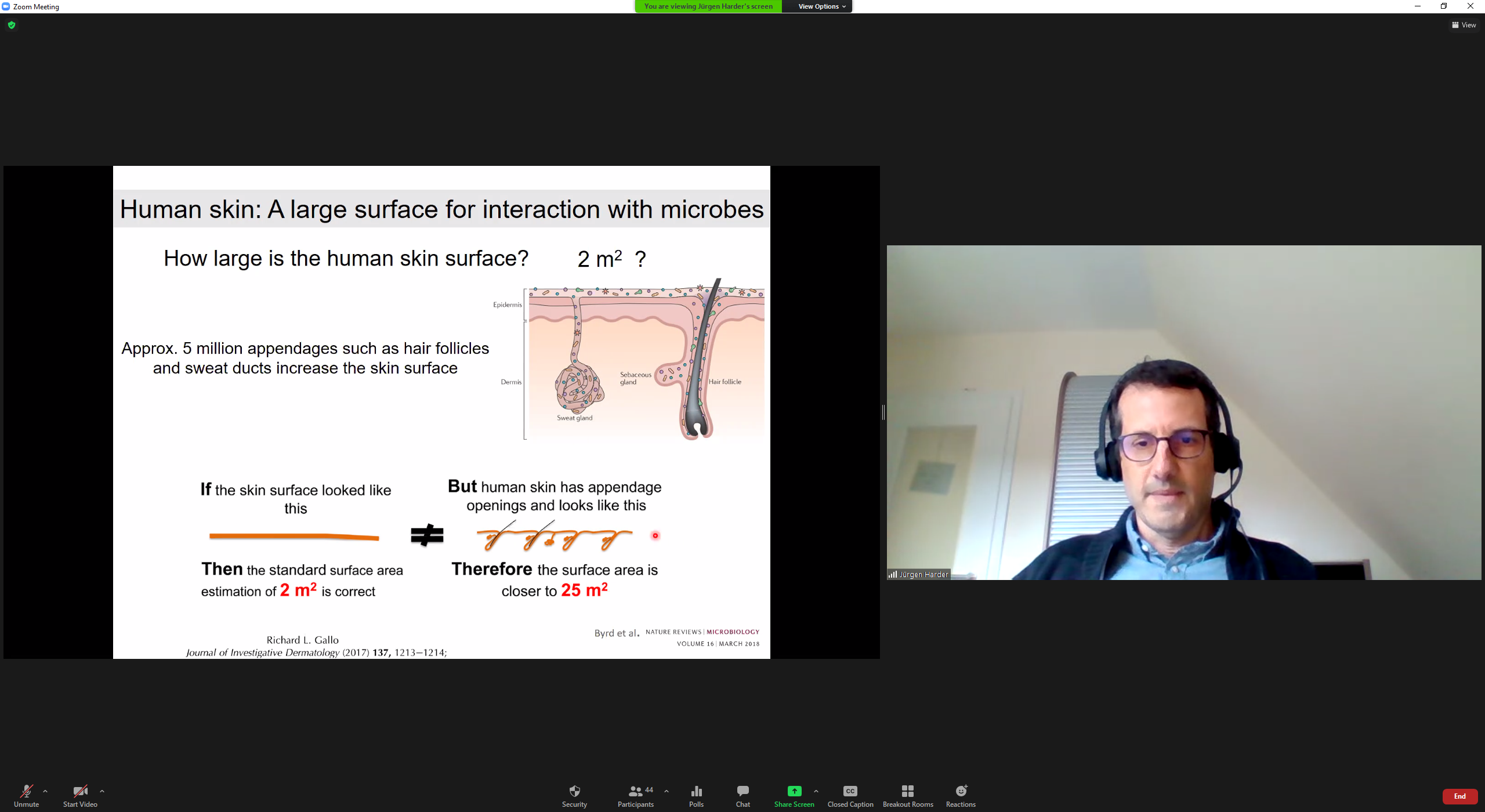
Part of Jürgen Harder’s lecture on microbiota and skin health.
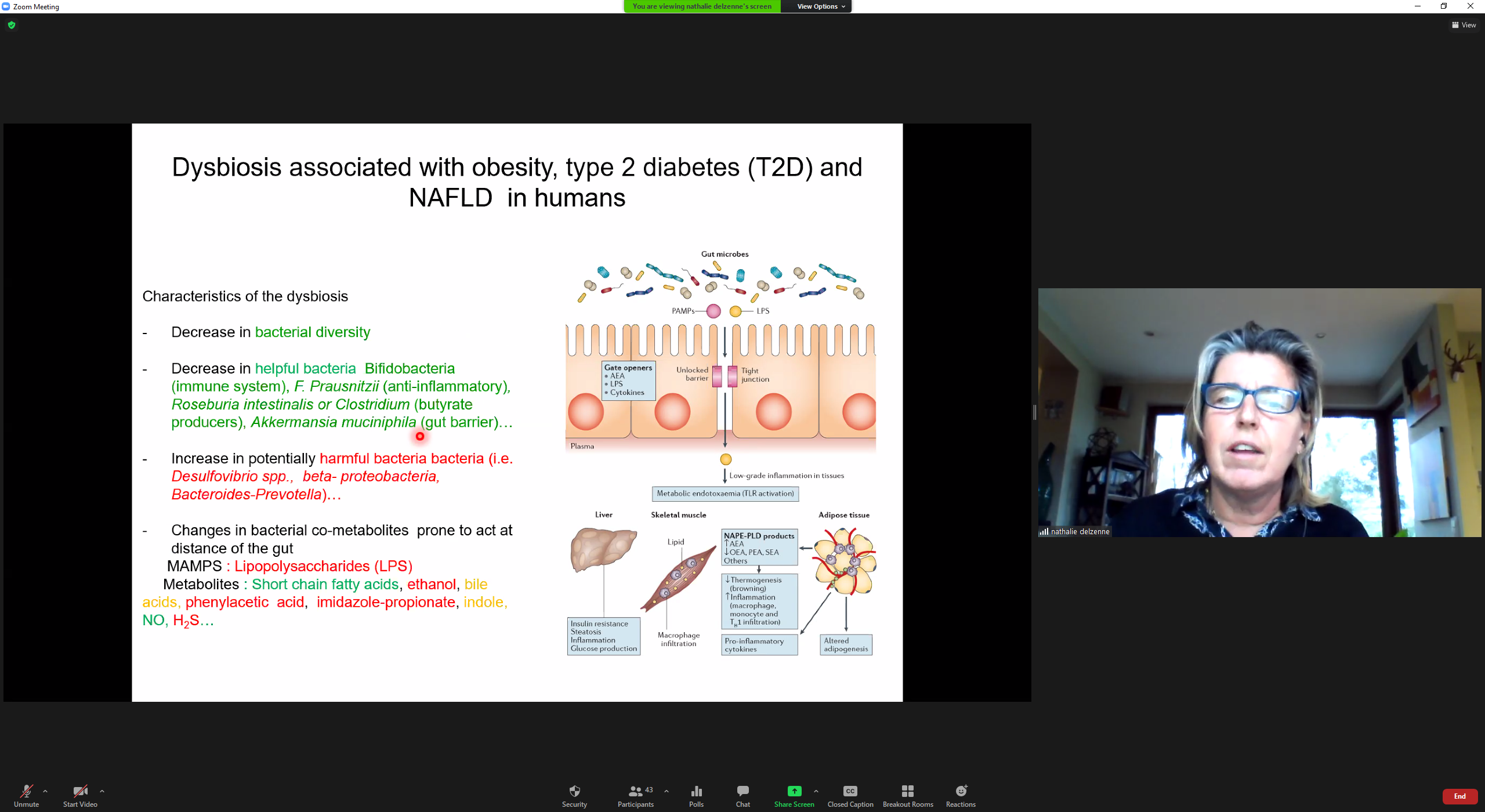
Part of Nathalie Delzenne’s lecture on prebiotics and probiotics.
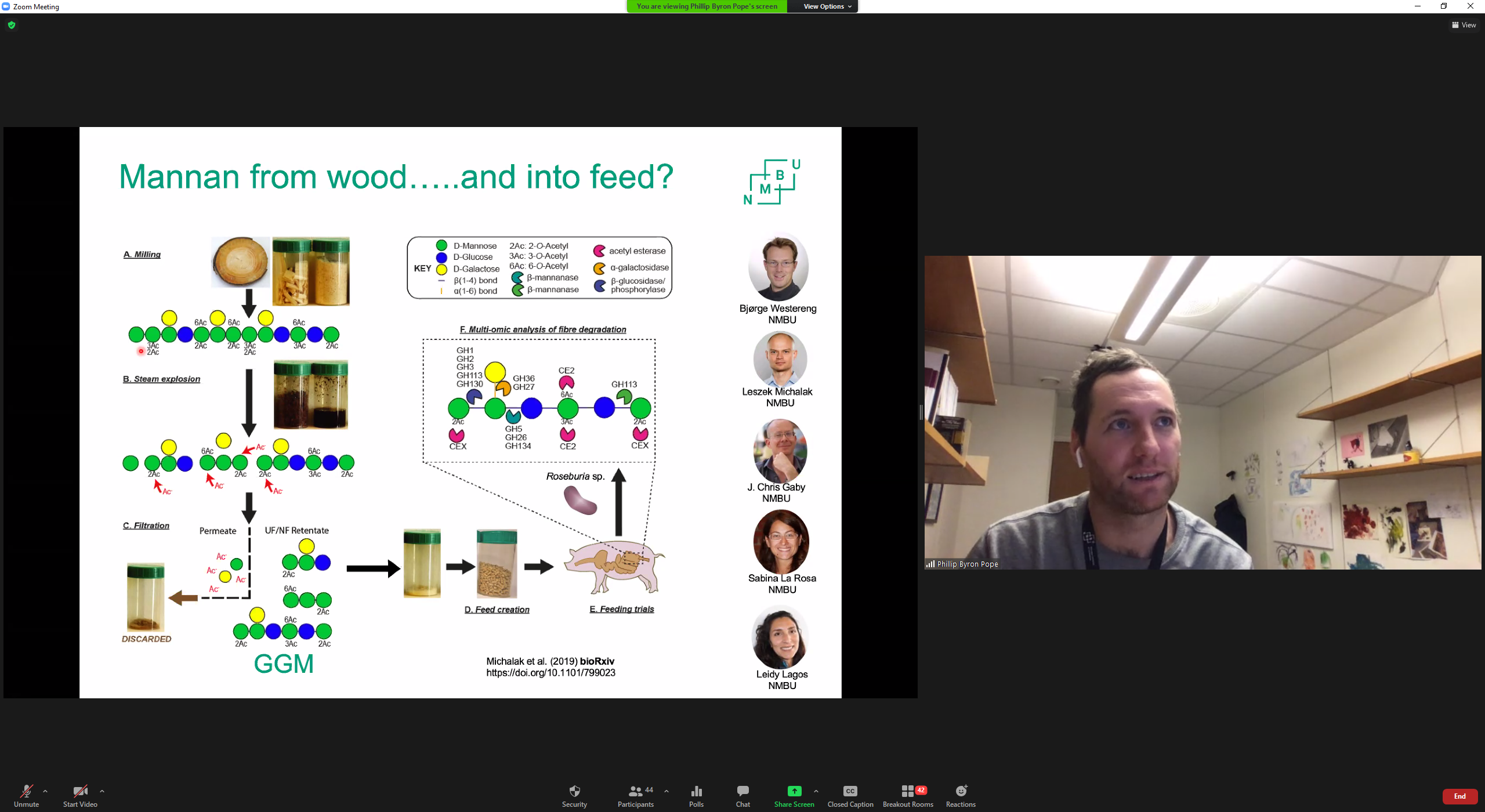
Part of Phillip Pope’s lecture on microbiota of farmed animals.
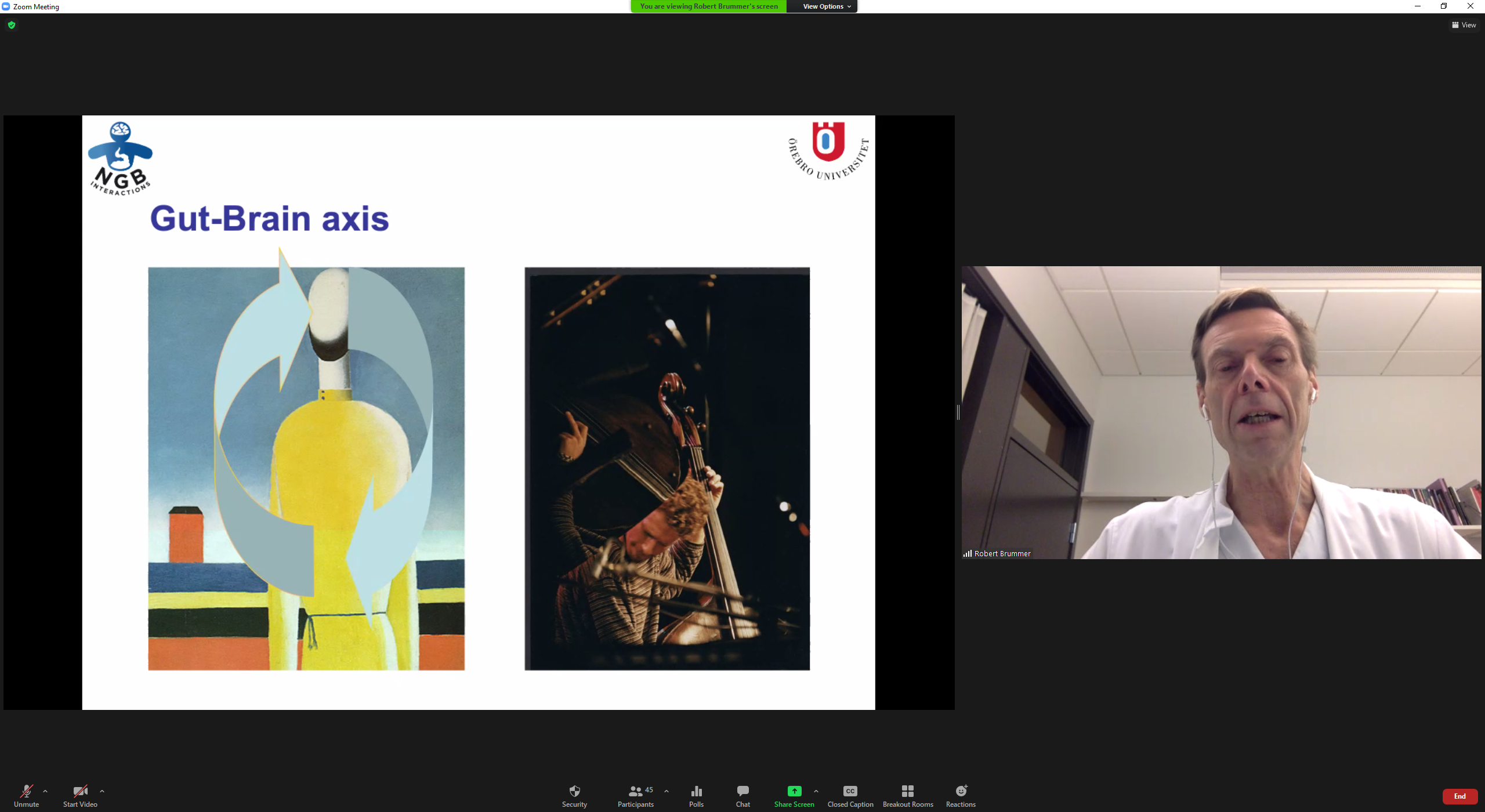
Part of Robert Brummer’s lecture on microbiota gut-brain axis.
In addition to these lectures, course participants presented and discussed their research with colleagues during live online poster sessions and free time online was also provided for informal discussions.
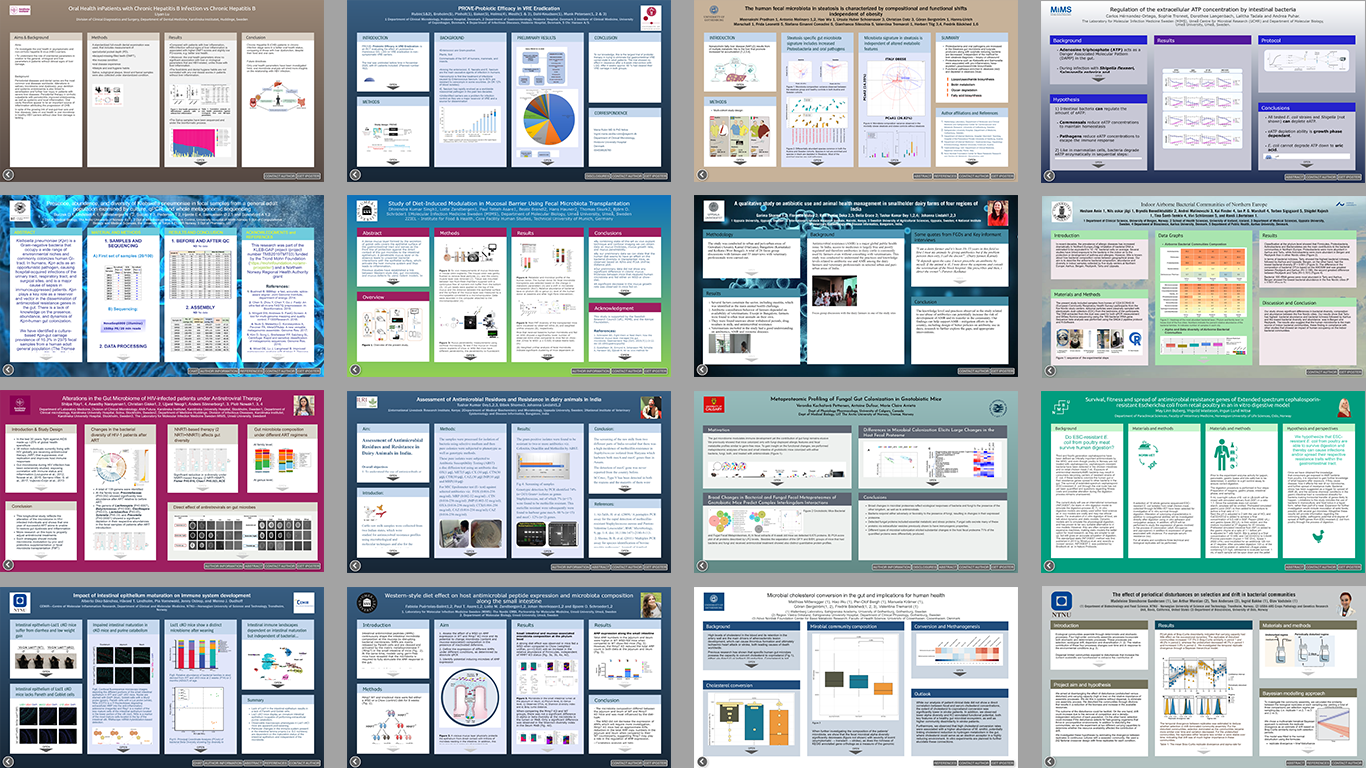
Collection of student posters created with aMuze’s iPosterSessions.
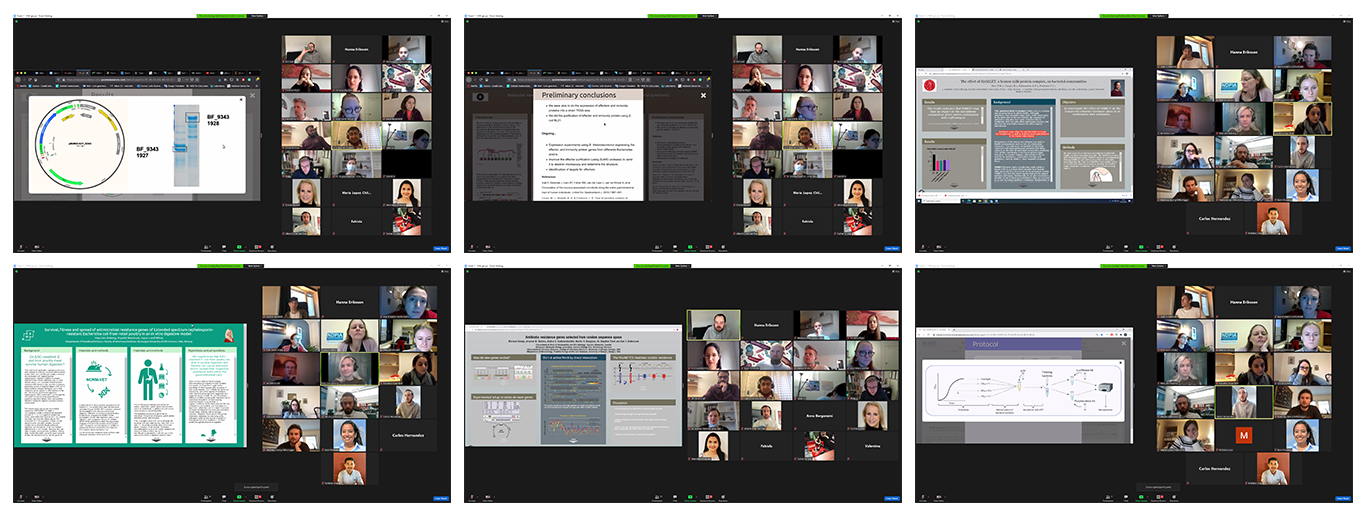
Collection of student poster presentations.
The course was successful in part due to it being online and travel was not needed. As a result, we could engage participants from Sweden, Germany, Norway, and Denmark to build scientific networks with each other as well as outstanding national and international researchers in the field.
To see the full course programme, please visit: ndpia.se/events/microbiota-and-health/
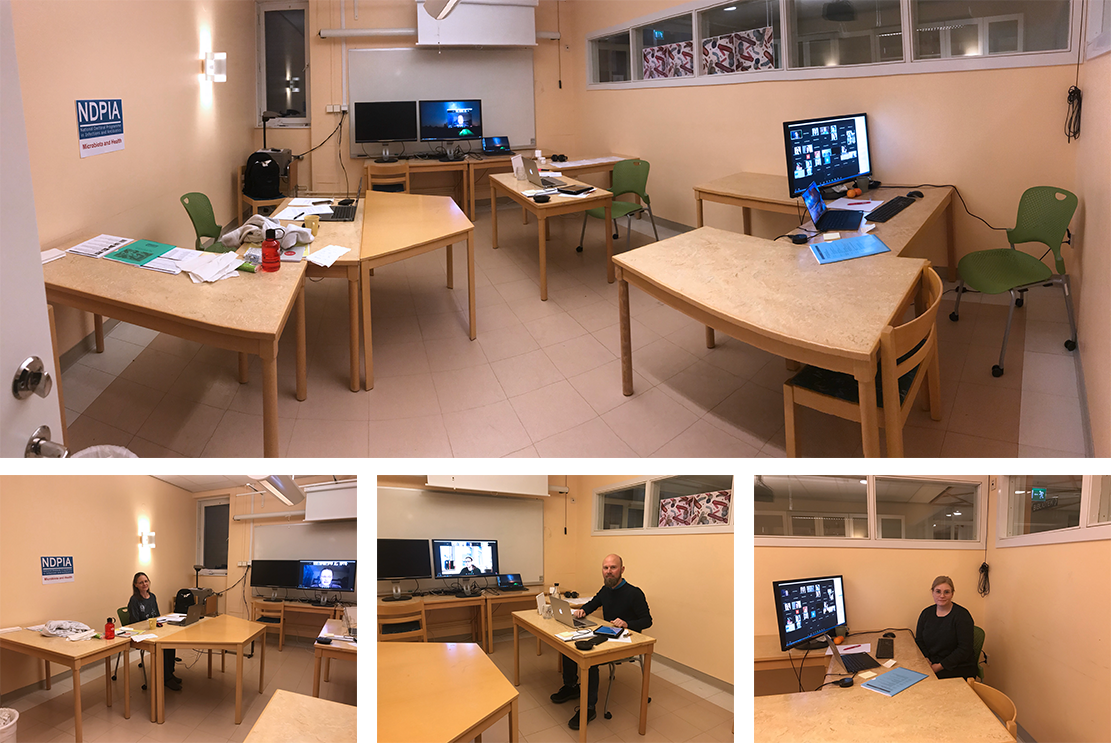
Workspace of the course organizers located at Umeå University. Pictured: Debra Milton, Björn Schröder, and Hanna Eriksson.
Registration open for Visualize your Science spring course!
NDPIA will offer 10 spots for the Visualize Your Science spring course. Register today to secure your spot!
When: March 2nd until May 7th
Registration deadline: February 19th
This course is designed for PhD students and postdocs who want to improve their skills in drawing images/figures for scientific posters, presentations, and publications. The course consists of tutorial videos, home assignments and four scheduled face-to-face feedback sessions online. Students progress from a beginner to an advanced level in visual rhetoric and in use of an illustration software of your choice.
Registration is open for Uppsala Health Summit 2021
Uppsala Health Summit is a recurring international policy arena for dialogue on challenges for health and healthcare, and how we can overcome them.
This year the theme is Managing Antimicrobial Resistance through Behaviour change and will through workshops and plenum sessions identify existing scalable, evidence-based solutions and discuss obstacles for implementation of policies and programmes.
RWTH Aachen University is looking for a junior professor!
The faculty of medicine at RWTH Aachen University is seeking qualified applicants for teaching and research in the area of mucosal infection biology. It is a junior professorship appointment with a tenure track career path towards a W2 professorship.


